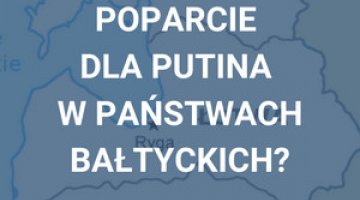Taiwan steps up capital involvement in Lithuania’s high-tech sector
On 18 January, three Lithuanian companies, Teltonika, SoliTek and Oxipit, announced that they had launched cooperation with Taiwan on joint projects and facilitating trade. According to a press release issued by the companies and the Lithuanian Ministry of Economy & Innovation, Teltonika, which specialises in the industry of networked devices, the so-called Internet of things (IoT), and the biotechnology start-up Oxipit will receive financial support from Taiwan’s foreign ministry (€10 million and €3.5 million respectively). The photovoltaic module manufacturer SoliTek, in turn, will receive an €8 million line of credit from the Bank of Taiwan.
The two-and-a-half-year agreement between Teltonika and Taiwan’s Industrial Technology Research Institute (ITRI) is an important part of the agreements, as the institute has contributed to the success of Taiwan’s global semiconductor giants TSMC and UMC. The agreement will provide Teltonica with access to licences for ITRI-developed technologies and devices for manufacturing semiconductor chips; the technological details of the licences granted were not disclosed. As part of the contract, the company will also receive assistance in preparing projects related to semiconductor chip manufacturing technology and, crucially for the development of new technologies, engineering training for its employees. Teltonika will develop the semiconductor manufacturing industry in Lithuania based on the licences it has been granted.
According to Lithuanian media, Eric Huang, head of Taiwan’s representative office in Lithuania, stressed the unique nature of the agreement, stating that he did not see any chance of Taiwan transferring its semiconductor-related technologies to another country in the future. Both Huang and the head of Taiwan’s foreign ministry, Joseph Wu, emphasised that the present cooperation between Lithuania and Taiwan would not have been possible without Lithuania’s support for Taiwan’s democracy.
Commentary
- The agreements with Taiwan are the first tangible success the current Lithuanian government has had in its relations with Taipei, which it has pursued despite Beijing’s opposition and China’s economic retaliation against Lithuanian companies. It builds on a US$1 billion loan fund offered to Lithuania by Taiwan’s National Development Council last January, which was earmarked for joint projects between Lithuania and Taiwan. Back in October 2021, the two governments signed six cooperation agreements covering various areas, including the development of the semiconductor and biotechnology sectors. In January 2022, Taipei also announced the creation of Taiwania Capital, a $200 million investment fund, with the aim of supporting business activity in Lithuania and other Central & Eastern European countries. The government in Vilnius was the first in the region to withdraw from multilateral cooperation with the PRC. It has also forged closer relations with Taiwan (for example, it agreed to Taiwan’ opening a representative office in Lithuania), and has made efforts to expand trade and cooperation opportunities in the semiconductor industry. The authorities expect the new agreements with Taipei to deprive the opposition of its arguments: it has stated that the government contributed to an escalation in relations with China by choosing to engage in precarious cooperation with Taiwan. These charges have undermined public confidence in the foreign policy conducted by the current cabinet.
- The sum of more than €20 million which Taiwan has offered to Teltonika, SoliTek and Oxipit is not a large amount; it cost €34 million to build just one Teltonika manufacturing plant in Molėtai in 2022. However, it may encourage other investors to enter into cooperation with Lithuanian high-tech companies. Teltonika’s agreement with ITRI on technology transfers is more significant, as it offers an opportunity to start semiconductor chip manufacturing in Lithuania and integrate the country into the semiconductor supply chains on the European market in the future. Teltonika, which has existed since 1998, is a fast-growing company that sells its products beyond the EU: it now has offices in 20 countries. It has already made 21 million IoT devices (including routers, modems, telemetry equipment and electric car charging stations) at its Lithuanian factories in Vilnius and Molėtai. It also offers innovative medical solutions (such as artificial lung ventilator and heart rate monitoring band). It uses chips from Taiwan in its factories; hence access to ITRI licences will allow it to start production for its own use as well, which will significantly reduce manufacturing costs in its factories.
- With technology transfers and financial support from Taiwan’s foreign ministry, Teltonika intends to launch the construction of a vast Teltonika High-Tech Hill technology park focused on semiconductor manufacturing in the Liepkalnis district of Vilnius. The company’s plans are supported by the Lithuanian government. The €10 million which Taiwan’s foreign ministry announced as support for the project is Taipei’s largest capital commitment to the Baltic country to date. Teltonika will contribute €4 million to the joint park project for now. The company will design, manufacture, assemble and test semiconductor chips and power modules with as yet unknown parameters. It can be assumed that this will not involve the most cutting-edge processors, but rather solutions tailored to the company’s profile, including IoT. The decade-long project is expected to cost around €4 billion. The company has not yet announced how the project will be funded. The park will house 20 manufacturing, training and laboratory units, employing a total of 8000 people. Teltonika estimates that once the project is completed, the value of its exports will reach €9–10 billion per year, or 5% of Lithuania’s GDP. Under the agreement with Taiwan, the company will set up a semiconductor research and development centre, a chip assembly plant and a chip factory, and also a project to produce power electronics components, to be established within two and a half years. Over the next five or six years, the company will purchase equipment and prepare to launch all the units in the park.
- The new agreements with Taiwan are also expected to facilitate bilateral trade cooperation. The Bank of Taiwan will open an €8 million line of credit for the photovoltaic module manufacturer SoliTek. These funds will allow the company to increase its purchases of Taiwanese components for photovoltaic modules and to obtain better terms for the deliveries of purchased products; Asian suppliers demand money upfront, so SoliTek will use the credit to be able to pay for deliveries, but it will actually complete each transaction once the cargo has arrived in Lithuania.
- Lithuanian start-ups that offer innovative solutions will also benefit from the new cooperation with Taiwan, as they would not be able to get such a boost to their development without outside capital. Litilit, a manufacturer of femtosecond lasers, was the first such company to obtain support from Taipei last year; it received €3.5 million as an investment from the $200-million Taiwania Capital venture fund, which is intended for projects in Central and Eastern Europe. Thanks to Lithuania’s cooperation with Taiwan, Litilit has installed a robotic assembly line and established a customer base in Europe, north-east Asia and the United States. The biotech start-up Oxipit has now received the same support; it uses artificial intelligence to analyse X-ray images without the need for doctors to get involved. Taipei, which does not specialise in the technologies these companies offer, is also benefitting from their growth. This cooperation is boosting the volume of Lithuanian products shipped to Taiwan and, more broadly, to the Indo-Pacific region, which the government in Vilnius considers to be an important new export destination.




